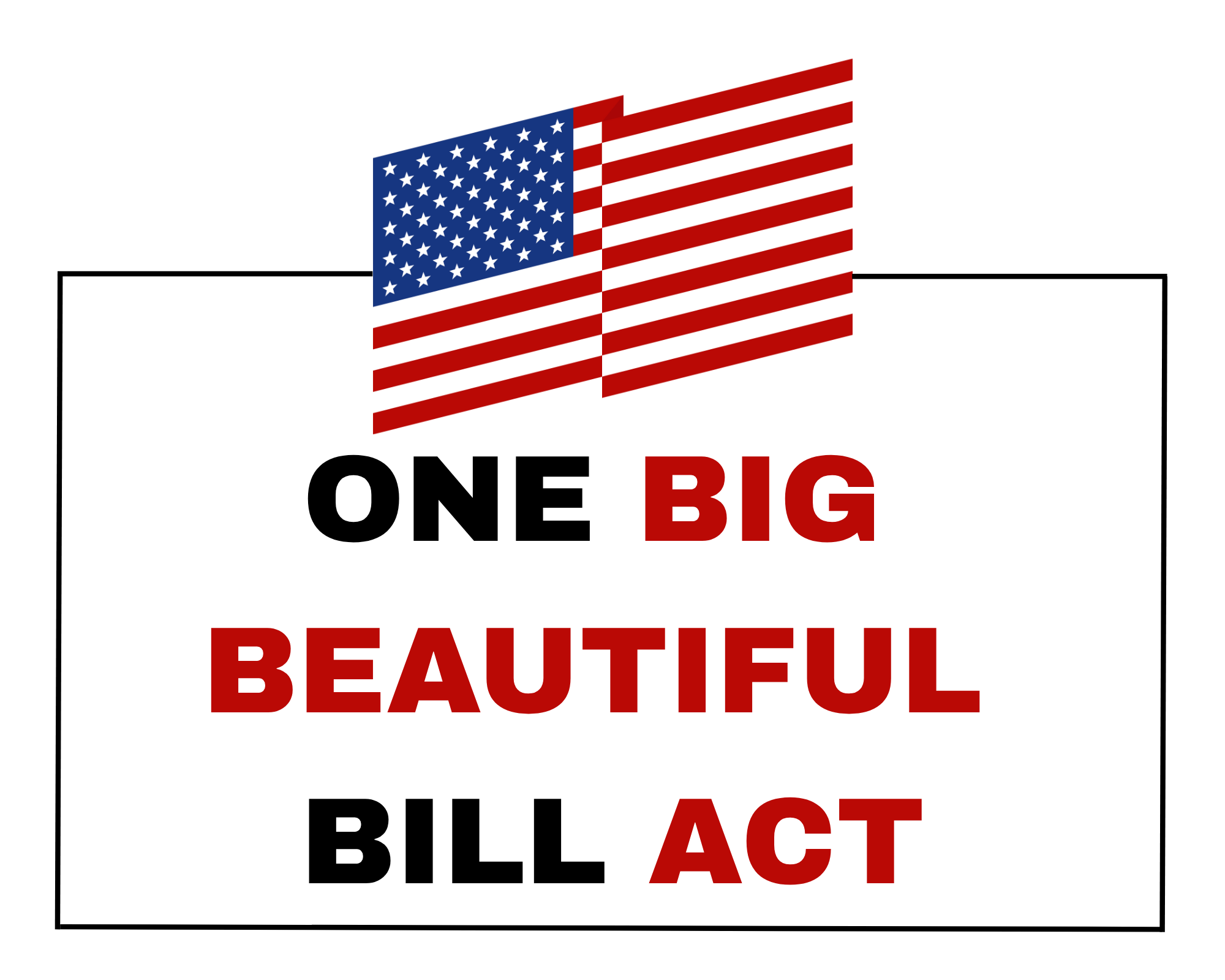What You Need to Know About the One Big Beautiful Bill Act
Last week Congress approved, and the President signed into law, new tax legislation, called the “One Big Beautiful Bill Act” (OBBB), which could impact financial planning strategies going forward.
Please see below a summary of what is inside the Big Beautiful Bill and how it could impact you:
Individual Income Tax Brackets and Standard Deduction
- The lower individual tax brackets from the 2017 Tax Cuts and Jobs Act (10%, 12%, 22%, 24%, 32%, 35%, 37%) are made permanent.
- The higher standard deduction is also made permanent and increases to $31,500 for married filing jointly ($15,750 single), indexed annually for inflation.
- This will maintain lower taxes for many middle- and upper-income households.
State and Local Tax (SALT) Deduction
- The SALT deduction cap increases to $40,000 in 2025 for households with income up to $500,000.
- A steep phaseout applies from $500,000 to $600,000 of income, effectively reducing the deduction back to $10,000.
Planning notes:- Non-grantor trusts can each claim a separate $40,000 SALT deduction, which may present additional planning opportunities.
- Pass-Through Entity Tax (PTET) elections remain in place, enabling business owners to deduct state taxes at the entity level.
Roth Conversions
- With income tax rates unchanged, Roth conversions remain attractive for clients expecting higher tax rates in retirement.
Estate and Gift Tax Exemption
- For 2025, the federal estate, gift and generation skipping transfer tax (GST) exemption is $13.99 million per individual ($27.98 million for married couples).
- Starting in 2026, the estate, gift, and GST exemption will increase to $15 million per individual ($30 million for married couples), indexed for inflation.
- Strategies such as Spousal Lifetime Access Trusts (SLATs), Dynasty Trusts, and permanent life insurance within those structures will remain central planning tools.
Corporate Rate & Bonus Depreciation
- While the OBBB does contain a number of business provisions, it is important to note that the corporate tax rate, set permanently at 21% by prior law, will not change.
- 100% bonus depreciation is reinstated for assets placed in service from 2025 to 2030.
- Section 179 expensing limit increases to $2.5 million, phasing out at $4 million—beneficial for real estate investors and business owners.
Qualified Business Income (QBI) Deduction – Section 199A
- The 20% deduction for pass-through income is made permanent, preserving tax planning opportunities for business owners.
- Phaseout thresholds for this deduction will increase modestly starting in 2026.
Qualified Small Business Stock (QSBS) – Section 1202
- The QSBS exclusion allows eligible investors to exclude a significant portion of capital gains from the sale of qualified small business stock.
- The OBBB raises the QSBS exclusion cap from $10 million to $15 million, raises the corporate asset limit from $50 million to $75 million, and reduces the required holding period from 5 years to 3 years.
- These changes will prompt a renewed evaluation of using C-corporations for startup ventures, especially where a sale is anticipated.
Qualified Opportunity Zones
- Set to return in 2027 with continued tax-deferral and exemption benefits.
- Limited utility in 2026 due to the sunset of deferral provisions.
- Techniques such as installment sales or charitable remainder trusts may help bridge gains from 2026 into 2027.
Alternative Minimum Tax (AMT)
- The higher AMT exemption is made permanent.
- Phaseout thresholds revert to $500,000 (individual) and $1 million (joint filers), affecting some higher earners.
Health and Family Benefits
- HSAs can now be paired with more health plans, including Bronze and Catastrophic ACA options.
- Dependent Care FSA limits increase to $7,500 (married filing jointly) starting in 2026.
- Child Tax Credit increases to $2,200 per child (indexed for inflation).
Charitable Contributions
- New $2,000 above-the-line deduction for joint filers ($1,000 for single filers).
- A 0.5% AGI floor now applies to itemized charitable deductions.
Other Noteworthy Provisions
- Car Loan Interest: Deduct up to $10,000 of interest paid, even without itemizing (phases out above $200,000 of income).
- Tips and Overtime Pay: Above-the-line deduction up to $25,000 for married filers ($12,500 single), with phaseouts beginning at $300,000 of income.
- Individual Trust Accounts for Minors: New tax-advantaged account for children under age 18, with $5,000 contribution limit and $1,000 federal match for children born between 12/31/24 and 1/1/29.
For questions regarding the potential impact of these changes, please do not hesitate to reach out.
Contact:
Email: [email protected]
Phone: (856) 252-0109
